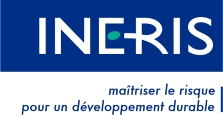Information
Edited on 03/14/2023
C9-C14 perfluorocarboxylic acids (PFCAs) may no longer be placed on the EU market or used in most applications from 23 February 2023.
Edited on 03/14/2023
The OECD has published the 2nd edition of the cross-country analysis on approaches to support alternatives assessment and substitution
Edited on 02/13/2023
ChemSec added 370 PFAS to the SIN list in its last update.
Edited on 02/13/2023
Details of the restriction proposal to reduce emissions of PFAS to the environment are available on the ECHA website.
Edited on 02/06/2023
The list of substances of very high concern (SVHC) or candidate substances for authorisation includes since 17 January 2023 nine additional substances, including : 2,2',6,6'-tetrabromobisphenol A, bisphenol S, bis(2-ethylhexyl)-tetrabromophthalate, perfluoroheptanoic acid and its salts and the reaction mass of octafluoro-4-(1,1,1,2,3,3,3-heptafluoropropan-2-yl)morpholine and octafluoro-4-(heptafluoropropyl)morpholine.
Edited on 01/16/2023
From 10 June 2023, concentrations of perfluorooctanoic acid (PFOA), perfluorohexane sulphonic acid (PFHxS) and their salts and related compounds must not exceed certain thresholds.
Edited on 11/14/2022
A risk profile for long-chain perfluorocarboxylic acids (PFCAs) was adopted at the last meeting of the Persistent Organic Pollutants Review Committee (POPRC-18)
Edited on 06/09/2022
In connection with the entry into force of a Californian regulation targeting PFAS used in textile and leather treatments, the DTSC (Department of Toxic Substances Control) has published a list of alternatives to these substances.
Edited on 05/20/2022
As part of the European Union's Chemicals Strategy for Sustainability, the European Commission presented its roadmap on 25 April 2022 with potential restrictions on the use of PFAS, bisphenols and C4-C6 phthalates.
Edited on 05/16/2022
In order to simplify your search for alternatives to alkylphenol ethoxylates, a table compiling all the information on this subject that was posted on the APEO substitution website has just been published!

